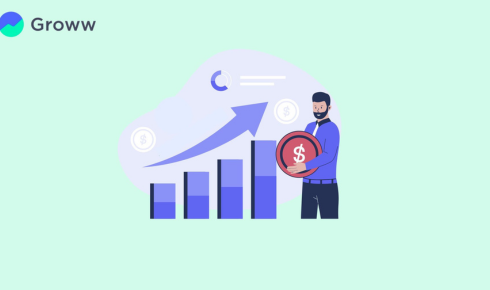
How Equity Margin Works—And Why It Matters in Today’s Market
In the fast-paced world of trading, understanding equity margin can be crucial. HDFC SKY, by HDFC Securities, provides a comprehensive platform for accessing a wide range of investment options. With features like interest-bearing margin trading and expert research, it’s essential to grasp how equity margin works to navigate today’s dynamic market effectively.
Understanding Equity Margin Basics
Understanding equity margin basics is essential for investors looking to maximize their trading potential. HDFC SKY, by HDFC Securities, provides a modern discount-broking platform that offers seamless access to a wide range of investment options, including Indian equities, ETFs, mutual funds, IPOs, derivatives, commodities, currencies, and global stocks. With zero account-opening charges and a flat ₹20-per-order brokerage fee, HDFC SKY makes it cost-effective for investors to enter the market and explore various trading opportunities. Additionally, the platform offers interest-bearing margin trading, allowing investors to leverage their investments and potentially amplify their returns. By utilizing expert research and intuitive tools provided by HDFC SKY, investors can make informed decisions and manage their margin trading effectively.
Equity margin calculator is a valuable tool for investors who wish to gain insights into their margin requirements and potential buying power. By accurately assessing their financial leverage, users can strategize better, minimizing risks and maximizing potential gains. This reinforces prudent margin trading, aligning with one’s financial goals and market strategies.
Margin trading involves borrowing funds from a broker to purchase securities, using the investor’s existing assets as collateral. HDFC SKY’s margin trading feature enables investors to trade beyond their cash balance, providing them with greater flexibility and potential for higher profits. However, it is crucial for investors to understand the risks associated with margin trading, as it can magnify losses in a volatile market. By educating themselves on equity margin basics, investors can make informed decisions about leveraging their investments and effectively managing their margin accounts. With HDFC SKY’s user-friendly platform and comprehensive support, investors can navigate the complexities of margin trading with confidence and optimize their trading strategies for long-term success.
The Role of Leverage in Equity Margin Trading
Leverage plays a crucial role in equity margin trading on platforms like HDFC SKY by HDFC Securities. Leverage allows investors to amplify their trading positions by borrowing funds from the broker to increase their buying power. This enables traders to control a larger position in the market with a smaller initial capital outlay. With leverage, investors can potentially magnify their profits if the market moves in their favor. However, leverage also comes with increased risk as losses can be amplified if the market moves against the trader. It is important for investors to carefully manage their leveraged positions and have a clear risk management strategy in place to mitigate potential losses.
HDFC SKY’s interest-bearing margin trading feature allows investors to access leverage while also earning interest on their invested capital. This can be an attractive option for traders looking to maximize their returns through margin trading. The platform’s expert research and intuitive tools can help investors make informed decisions about leveraging their positions based on market conditions and risk appetite. By utilizing leverage effectively, investors on HDFC SKY can take advantage of market opportunities, diversify their portfolios, and potentially enhance their overall returns. However, it is essential for investors to understand the risks associated with leverage and use it judiciously to avoid significant losses.
Using the margin calculator, investors can more accurately assess their borrowing capacity and manage potential risks associated with margin trading. This tool helps in determining the required margin and evaluating the financial implications of leveraging positions. Consequently, investors can optimize their strategies, aligning them with their risk tolerance and investment goals.
Margin Requirements and Regulations
Margin requirements and regulations play a crucial role in the trading ecosystem, ensuring the smooth functioning of financial markets and protecting investors. HDFC SKY, by HDFC Securities, adheres to stringent margin requirements and regulatory standards to maintain a secure and transparent trading environment for its users. Margin trading allows investors to amplify their buying power by borrowing funds from the broker, using their existing securities as collateral. However, this practice comes with inherent risks, making it essential for brokers to set margin requirements that mitigate potential losses. By establishing minimum margin levels, HDFC SKY ensures that investors have sufficient funds or securities in their accounts to cover any potential losses, reducing the risk of default and maintaining the stability of the market.
In addition to setting margin requirements, HDFC SKY also complies with regulatory guidelines established by governing bodies like SEBI (Securities and Exchange Board of India) to safeguard investor interests and maintain market integrity. These regulations govern various aspects of trading, including margin maintenance, leverage limits, disclosure requirements, and investor protection measures. By staying compliant with these regulations, HDFC SKY upholds high standards of transparency, accountability, and investor protection, instilling trust among its user base. Through a combination of robust margin requirements and strict adherence to regulatory standards, HDFC SKY ensures a safe and efficient trading environment that empowers investors to make informed decisions and achieve their financial goals.
Risks Associated with Equity Margin Trading
Equity margin trading, while offering the potential for higher returns, comes with inherent risks that investors need to be aware of. One of the main risks associated with margin trading is the amplified potential for losses. When an investor trades on margin, they are essentially borrowing funds from the broker to invest in securities. If the market moves against their position, they not only face losses on their invested capital but also on the borrowed funds, which can lead to significant financial losses. Additionally, margin trading involves the use of leverage, which magnifies both gains and losses. This means that while investors have the opportunity to amplify their returns, they also have the potential to incur greater losses than if they were trading with their own capital.
Another risk of equity margin trading is the possibility of a margin call. A margin call occurs when the value of the securities in the investor’s account falls below a certain threshold, triggering a requirement for the investor to deposit additional funds or securities to bring the account back to the required level. Failure to meet a margin call can result in the broker liquidating the investor’s positions to cover the margin shortfall, potentially locking in losses and leading to financial distress. It is crucial for investors engaging in margin trading to have a thorough understanding of the risks involved and to carefully manage their positions to avoid margin calls and potential financial ruin.
Benefits of Using Equity Margin
Using equity margin can provide several benefits to traders and investors on platforms like HDFC SKY by HDFC Securities. One of the key advantages is the ability to leverage one’s capital, allowing individuals to trade with borrowed funds and potentially amplify their returns. By utilizing margin, traders can take larger positions in the market without having to fully fund the trade with their own capital, thereby enhancing their profit potential. This can be particularly advantageous in volatile markets or when opportunities arise that require a larger investment than what is currently available in the trading account.
Wipro share price movements can serve as a case in point. When leveraging margin, traders can capitalize on fluctuations in such stock prices to maximize their returns. Moreover, the increased buying power allows investors to diversify their portfolio, mitigating risks associated with relying on a single stock’s performance.
Another benefit of using equity margin is the flexibility it provides in managing one’s portfolio. Margin trading allows investors to diversify their holdings and take advantage of various trading strategies that may not have been possible with only their own capital. Additionally, margin trading can help traders hedge their positions effectively, reducing overall risk in their portfolio. With access to interest-bearing margin trading on platforms like HDFC SKY, traders can optimize their trading strategies and potentially increase their overall returns in the market.
Margin Calls and Maintenance Requirements
Margin calls and maintenance requirements are vital concepts in the world of margin trading. When an investor uses margin to leverage their investments, the brokerage firm may issue a margin call if the value of the securities in the account falls below a certain threshold. This call requires the investor to deposit additional funds or securities to bring the account back to the required level. Failure to meet a margin call can result in the brokerage liquidating the investor’s positions to cover the shortfall. Maintenance requirements, on the other hand, refer to the minimum amount of equity that must be maintained in a margin account. This ensures that the investor has enough funds to cover potential losses and protects the brokerage from excessive risk exposure.
HDFC SKY, offered by HDFC Securities, provides a platform that supports margin trading with interest-bearing features. This means that investors can borrow funds from the brokerage to trade securities, paying interest on the borrowed amount. The platform’s zero account-opening charges and flat brokerage fee per order make it an attractive option for investors looking to access a wide range of investment products. With expert research and intuitive tools available on HDFC SKY, investors can make informed decisions about their margin trading activities. Understanding margin calls and maintenance requirements is crucial for investors utilizing margin trading to manage risk and optimize their investment strategies on platforms like HDFC SKY.
Importance of Monitoring Margin Levels
Monitoring margin levels is crucial for investors using HDFC SKY by HDFC Securities. Margin trading allows investors to leverage their investments, potentially amplifying returns but also increasing risk. By monitoring margin levels regularly, investors can ensure they are within their risk tolerance and avoid margin calls that could lead to forced liquidation of assets. This proactive approach helps investors maintain control over their investments and make informed decisions to protect their portfolio from significant losses.
Additionally, monitoring margin levels helps investors take advantage of market opportunities effectively. By staying informed about their margin positions, investors can adjust their trading strategies and make timely decisions to capitalize on market trends. This proactive monitoring also enables investors to manage their leverage effectively, optimizing their returns while minimizing the potential downside risks associated with margin trading. Overall, staying vigilant about margin levels on HDFC SKY can help investors navigate the dynamic market environment with confidence and strategic acumen.
Impact of Market Volatility on Equity Margin
Market volatility can have a significant impact on equity margin trading. During periods of high volatility, the value of securities held as collateral for margin loans can fluctuate rapidly, leading to increased margin requirements. This can pose a challenge for traders as they may be required to deposit additional funds or securities to meet the new margin requirements set by the broker. Failure to meet these requirements can result in forced liquidation of positions, potentially leading to significant losses for the trader. Therefore, it is crucial for investors engaging in margin trading to closely monitor market volatility and adjust their trading strategies accordingly to manage risk effectively.
HDFC SKY, offered by HDFC Securities, provides a platform that caters to the needs of traders looking to navigate the challenges of market volatility in equity margin trading. With features like interest-bearing margin trading and expert research, HDFC SKY equips traders with the tools and resources needed to make informed decisions during volatile market conditions. Additionally, the platform’s intuitive tools help traders analyze market trends and make timely adjustments to their positions to mitigate risks associated with margin trading. By offering competitive brokerage rates and zero account-opening charges, HDFC SKY aims to make margin trading accessible and cost-effective for investors, while also providing the necessary support to navigate the complexities of volatile markets.
The intraday trading app is an integral aspect of HDFC SKY, designed to enhance the trading experience by providing real-time updates and notifications. This app facilitates quick decision-making, enabling traders to stay ahead in fast-paced market environments. With user-friendly navigation, it ensures seamless access to crucial market data anytime, anywhere.
Strategies for Managing Equity Margin Effectively
Effective management of equity margin is crucial for traders and investors to maximize their returns and minimize risks. One key strategy for managing equity margin effectively is to maintain a disciplined approach to risk management. This includes setting clear stop-loss levels to limit potential losses and adhering to them rigorously. Traders can also consider diversifying their portfolio to spread out risks and reduce the impact of any potential margin calls. Additionally, staying informed about market trends, news, and events that could impact the value of securities can help in making well-informed decisions on margin trading.
Another important strategy for managing equity margin effectively is to regularly monitor and reassess the margin requirements of the positions in the portfolio. By keeping a close eye on the margin levels and adjusting the positions as needed, traders can avoid unexpected margin calls and potential liquidation of assets. Utilizing tools and resources provided by platforms like HDFC SKY, such as expert research and analysis, can also aid in making informed decisions about margin trading. Moreover, having a clear understanding of the platform’s margin rules and leveraging interest-bearing margin trading options can further enhance the effectiveness of managing equity margin.
Comparing Equity Margin with Other Trading Strategies
Equity margin trading is a popular strategy among investors looking to amplify their potential returns by leveraging borrowed funds. Compared to other trading strategies, such as intraday trading or long-term investing, margin trading allows investors to control a larger position size with a smaller amount of capital. This can lead to higher profits if the market moves in the investor’s favor. However, it also carries higher risks as losses can be magnified due to the leverage involved. Therefore, investors need to be cautious and have a solid risk management plan in place when engaging in equity margin trading.
In contrast, intraday trading involves buying and selling securities within the same trading day to capitalize on short-term price movements. While it offers quick profits, it also requires constant monitoring of the market and a high level of skill and discipline. On the other hand, long-term investing focuses on buying and holding securities for an extended period to benefit from the overall growth of the market. This strategy is more passive and less risky compared to margin trading and intraday trading but may not provide the same level of potential returns in the short term. Ultimately, the choice between equity margin trading and other strategies depends on an investor’s risk tolerance, time horizon, and investment goals.



